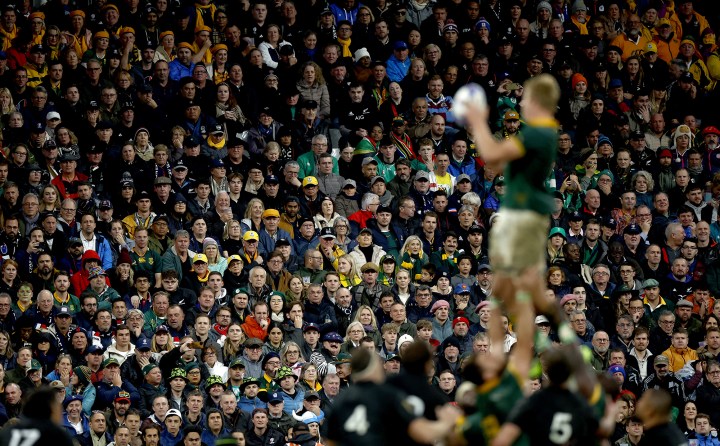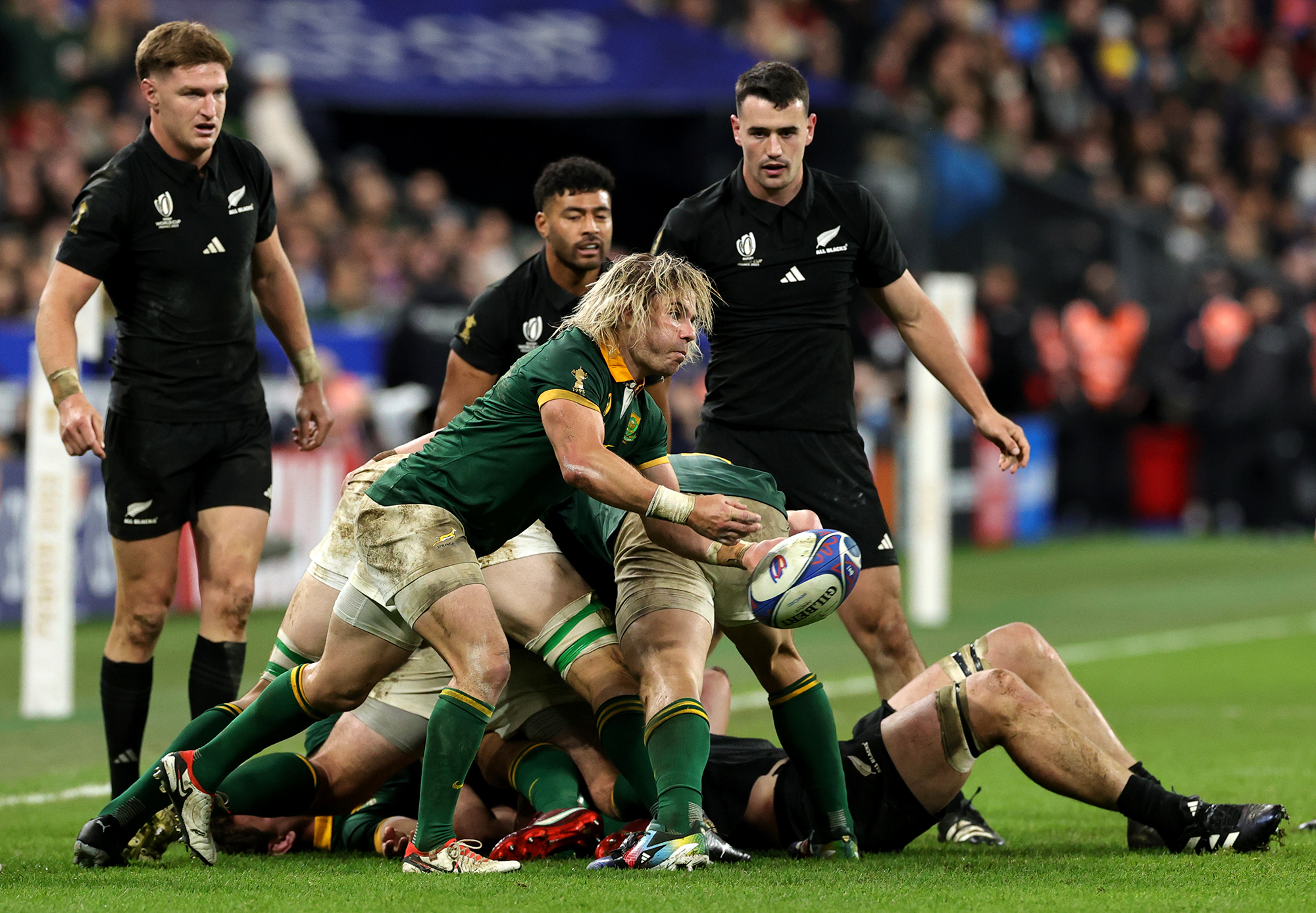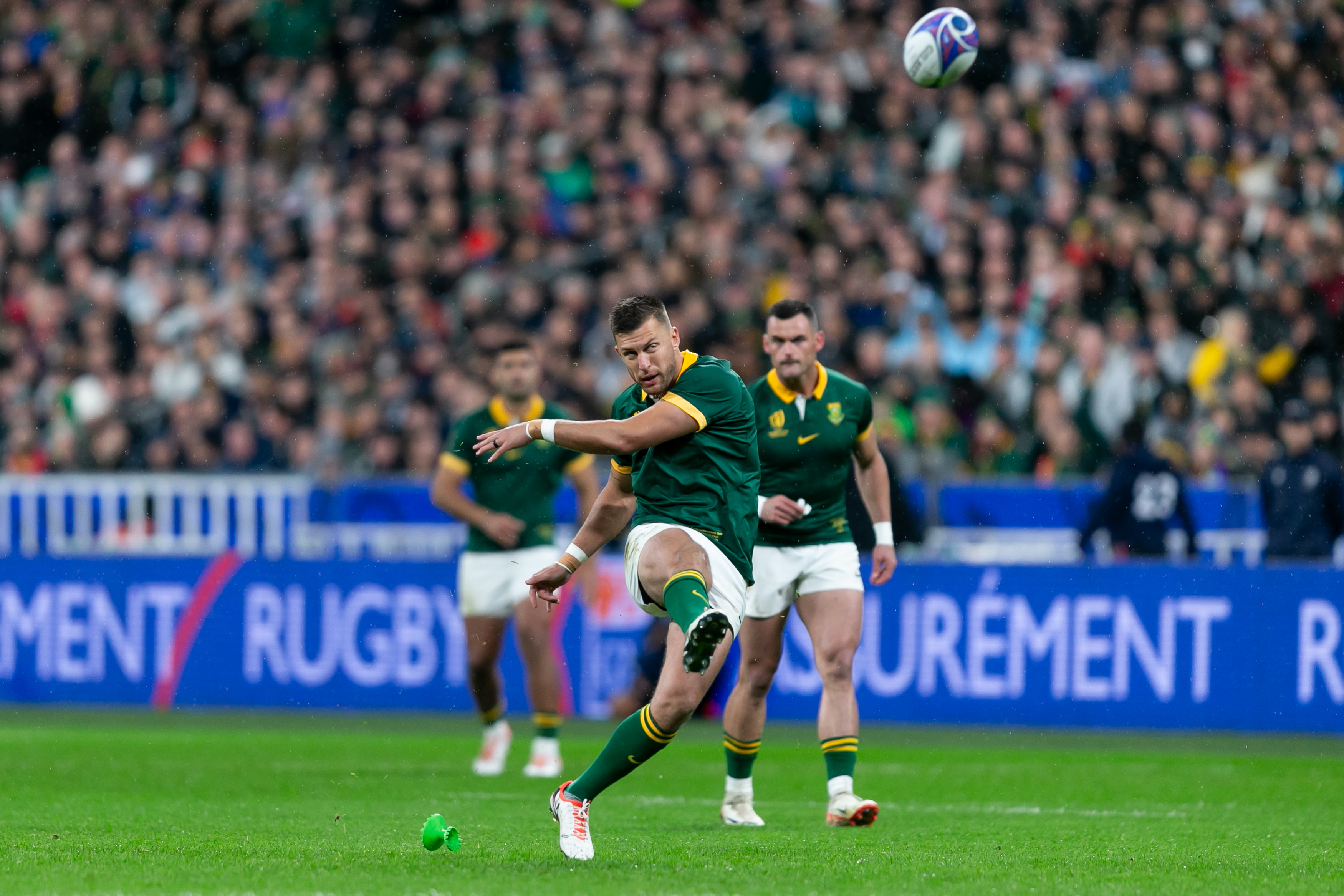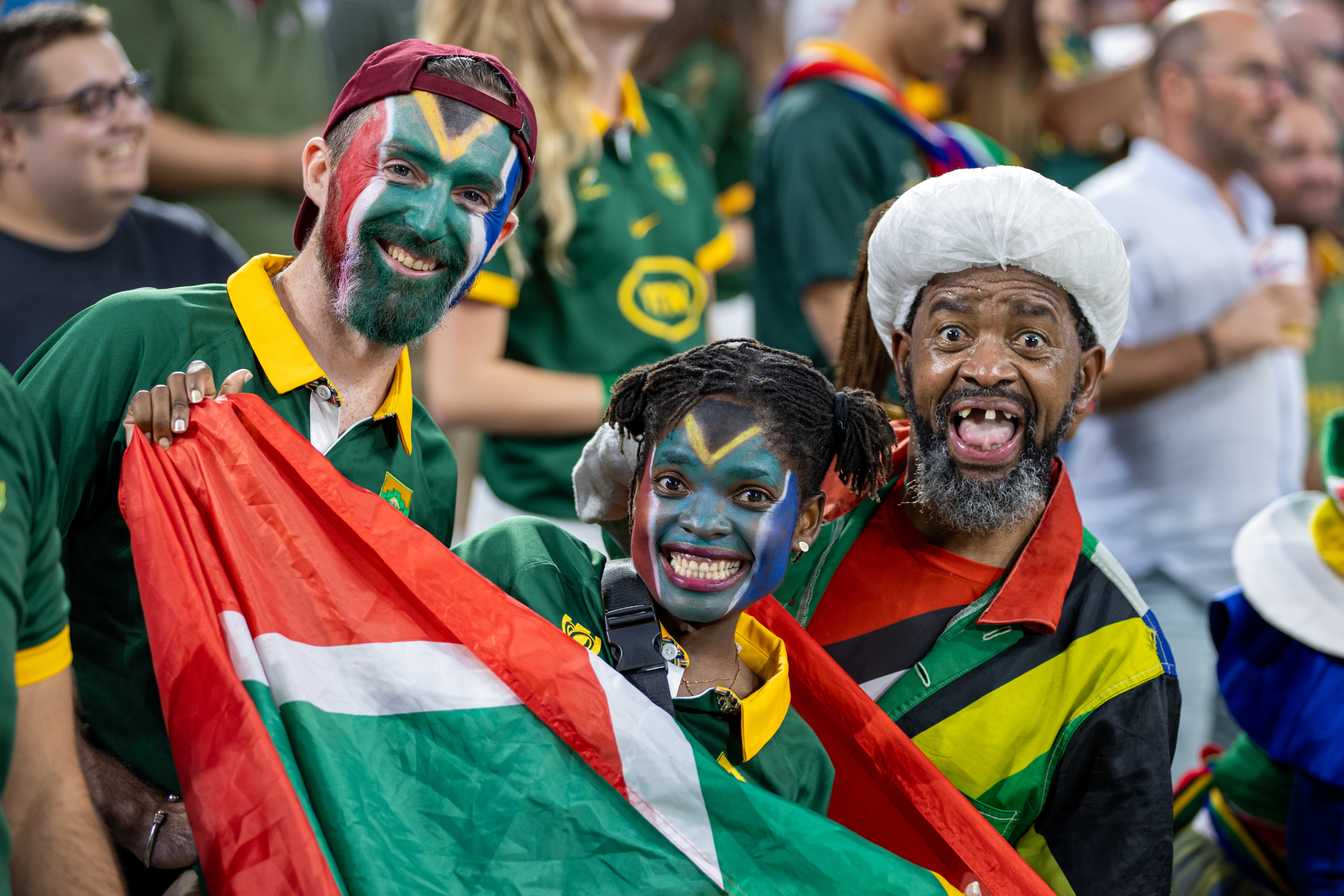DREAMS OF RUGBY OP-ED
A one-time aspirant Springbok reflects on the significance of our victory — Part One

When I was growing up, rugby was emblematic in many ways of hard, tough masculinities. Playing rugby was part of the rites of passage from boyhood to manhood – and it’s no accident in South Africa that rugby is a very rough sport.
“The events of the past six weeks are an incredible tribute to the transformation of a symbol that once represented raw Afrikaner nationalism and power to one that is currently the strongest glue of a nation.
“After breaking into the quarter-finals, there were those last three one-point win matches during which the entire nation was on the verge of cardiac arrest.
“The explosions of joy after each of those, particularly the final, generated enough energy to power a spaceship to the outer reaches of the universe.” – Mondli Makhanya: “From symbol of apartheid to glue of the nation.” (City Press, 5 November 2023).
“I watched as we gathered in communion, excited and nervous; our path here was not easy. I saw different cultures welcome each other, as our team represented a variety of people who live in our country.
“I watched confidence grow on their faces as they observed the prowess in teamwork, strategy and skill moving things forward to take the lead. I saw a room full of strangers become best friends as they cheered strong defensive moves and collectively held their breath as the point difference narrowed.
“The hopes of a nation holding on by one point clearly visible in the eyes of each person, and the anguish of watching the clock tick when time itself seemed to slow down.”– Alaister Russell: “I didn’t watch the game, but I saw how beautiful South Africans can be when they’re truly happy.” (Sunday Times, 5 November 2023).

Faf de Klerk passes the ball clear during the Rugby World Cup final at Stade de France on 28 October. (Photo: David Rogers/Getty Images)
A complicated history
I have a complicated history with rugby. I grew up as a typical white South African boy. I think this is also true of many young black boys growing up and wanting to be a top rugby player. In the case of myself, I would have wanted to be a Springbok rugby player, rather than realise any academic achievements.
Although I was brought up with an emphasis on ethics and integrity at home, in my school environment this did not feature in most interactions, compared with the emphasis which I internalised on the importance of toughness and excellence in rugby.
But I unfortunately had a leg injury at the age of nine and was not able to play rugby. Every year, I would go to the orthopaedic surgeon with my parents and ask whether I could play rugby and he would say “no”. And I would go home, crying.
What I see at work there, and why I’m willing to re-examine my/our relationship with rugby, which is also more complicated in the political sphere, is that rugby was emblematic in many ways of hard, tough masculinities. Playing rugby was part of the rites of passage from boyhood to manhood – and it’s no accident in South Africa that rugby is a very rough sport.
One could not be a proper man or grow up to be a proper man, as I understood it in my youth, unless one was a rugby player. I did no theorising then and this is all ex post facto reflection, my understanding things now in ways that I did not try to or could not comprehend then.
Read more in Daily Maverick: The RasNaber Springbok era was defined by many things, but above all else it was defined by courage
Because I was not playing rugby, I was consigned with other “moffies” to play hockey. Now the word “moffie” is understood to refer to gay men, but the predominant usage I encountered in the Western Cape where I grew up was a reference to someone who was a sissy. (See Pierre de Vos’s excellent reminiscences of his relationship with rugby and his father).
Hockey is of course also quite a tough game in the sense that you can be badly injured (especially in those years when the protective equipment was not as well developed as it is now), but the danger – which then appealed to me – was not on a par with rugby.
There are some eight and 10 years that separate me from my younger brothers, and we did not know of one another’s experiences with rugby, because I was in Cape Town when they were in high school in Johannesburg. Both were leading players at their schools, Northview High School.
My younger brother, John, who captained several rugby teams, tells me that if one wanted to be released from playing rugby at Northview High School, one needed a notice from a doctor certifying that there were medical reasons not to play. He also related how my youngest brother, Alan, decided one year to play hockey instead of rugby. On hearing of this, the coach of the rugby team crossed over to the adjoining hockey field and pulled Alan across to return to the rugby team.

Handré Pollard of South Africa kicks during the Rugby World Cup 2023 final between New Zealand and South Africa at Stade de France on 28 October 2023. (Photo: Juan Jose Gasparini/Gallo Images)
Daydreaming about achieving greatness
I would daydream about being a top rugby player/Springbok hero, which is what I really aspired to as a young boy, with little interest in reaching great heights in other activities in the school. All that consumed my ambitions was the unrealisable, to be a rugby player or rather a top rugby player.
John Hoffman, a leading political theorist in the UK, based for some time at Leicester University and who is now retired, was a student with me at UCT. We have reunited periodically, most recently around 2007. He has published many political and feminist theory texts.
But he had also written Marxist articles under the name Dialego in the African Communist (then the illegal underground, now legal, journal of the South African Communist Party). I did not see these because I was a political prisoner at the time, and access was in any case very difficult in the country.
I hadn’t appreciated at first that Hoffman had had polio, and like me he was not able to play rugby, and like me, he admitted that he also daydreamed about becoming a top rugby player. Even though both of us were to achieve some things in scholarship, in our early lives, we placed greater weight on rugby. John Hoffman was not at the same school as me, he was from then Rhodesia, but I met him at UCT.

Cheering supporters during the Rugby World Cup 2023 match between South Africa and Tonga at Stade Velodrome on 1 October 2023 in Marseille. (Photo: RvS.Media/Sylvie Failletaz/Getty Images)
A rugby obsession
This obsession was not restricted to me. The focus on achievement in rugby was everywhere, although the pain of not being able to play rugby was restricted to some of us, like John Hoffman and myself.
Read more in Daily Maverick: The final — a contest of two contrasting styles in the ultimate battle for rugby supremacy
I remember at my school SACS (South African College School, the oldest in the country, established in 1829) there were plaques on the wall noting who had achieved First Class matriculations and other distinctions.
But in reality, the most important thing at SACS, and I think at many other boys’ schools, was achievement in sports. I remember that Basil Bey, the captain of the UCT rugby team, came to speak at the school. At a certain point, he said “your studies are important, but rugby is the main thing”. We all applauded and I may have been one of the most enthusiastic.
So in my early life, I was very, or fanatically keen on rugby. Although I didn’t play rugby, I would go and watch games at Newlands every Saturday and often watched SACS’ first team play. I dreamt of being able to perform crash tackles and similar feats that I saw leading rugby players carry out. DM
This article first appeared on Creamer Media’s polity.org.za


















 Become an Insider
Become an Insider
Good article! As a rooinek, who only really learned his rugby in the Free State when I emigrated and ran away from England, I am so glad to see rugby earning it’s top place in this country. Having two boys when we lived in Durban who did very well at rugby I still think it’s an amazing game for all kids of all genders, sizes and skill levels. So if the Boks can engender that interest, great. At Westville Boys High, I was absolutely dumbstruck when I found out that at each grade there were up to 10 teams, and as I understand it, not forced to play, who seemed to thoroughly enjoy it and most importantly learnt the value of teamwork, plus confidence in themselves. I truly believe that Rassie and Jacques, plus their team, have done wonders for both SA AND world rugby and I look forward to it increasing in popularity. Hou duime vas!